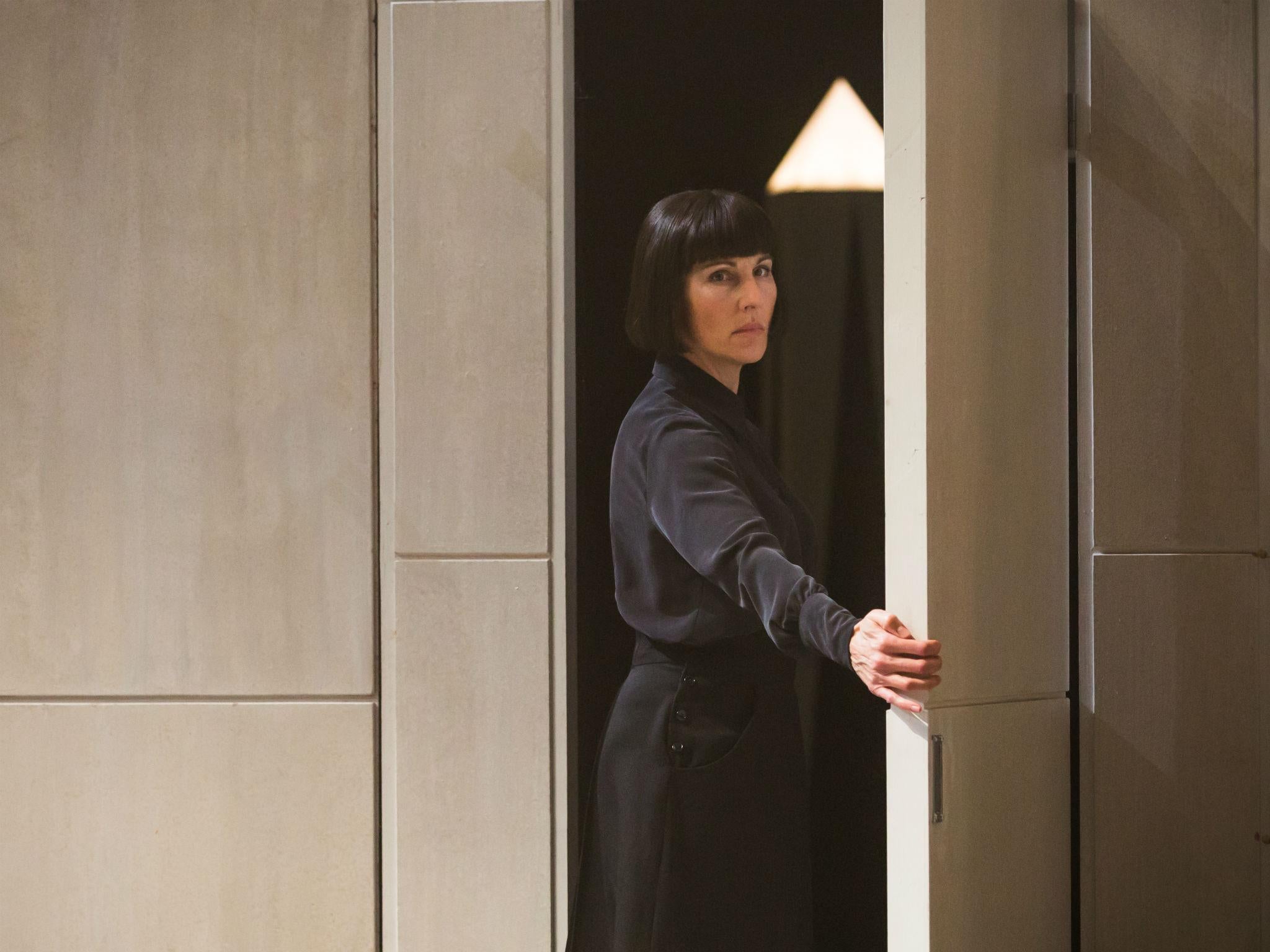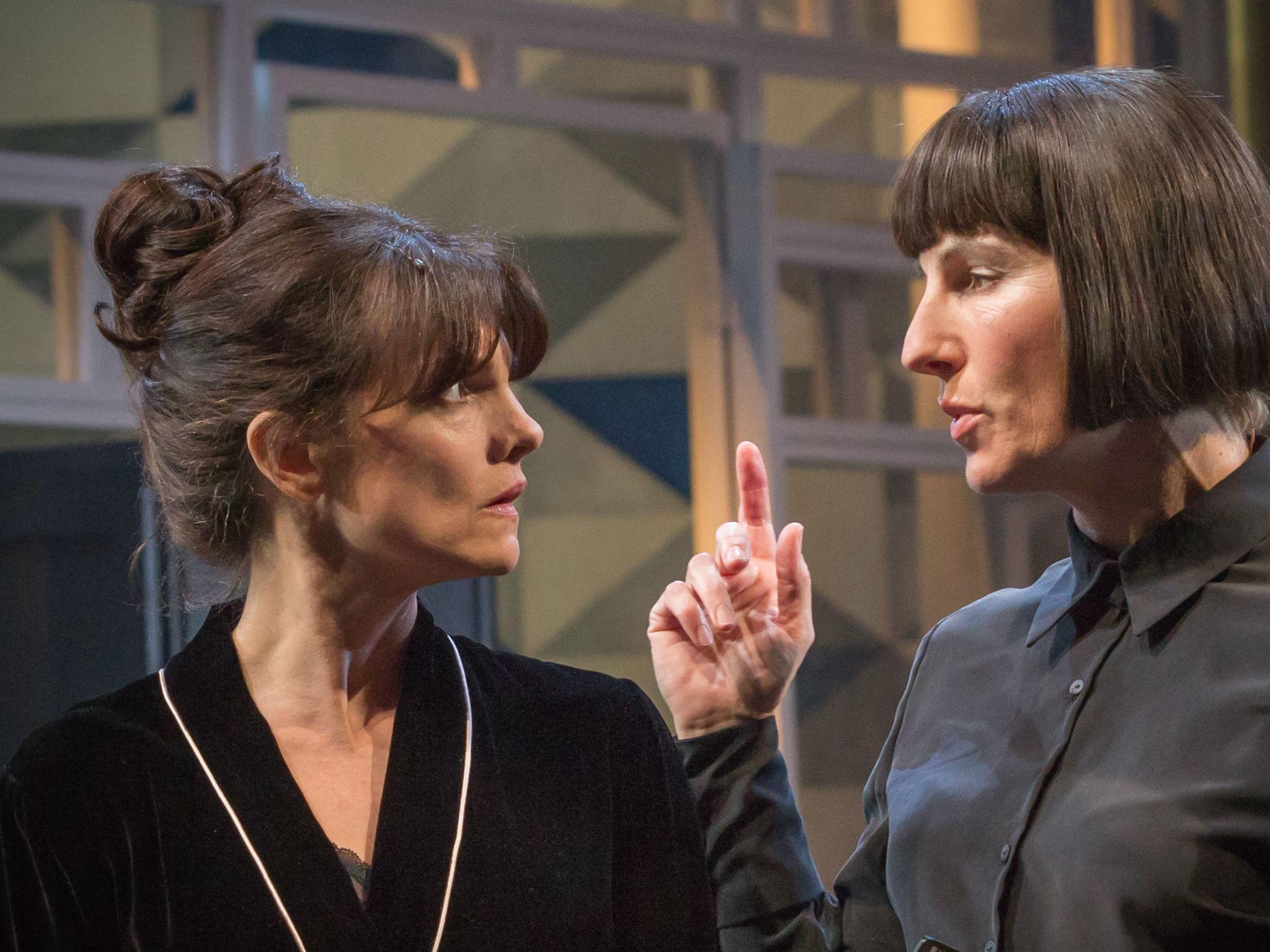Why female thespians like Tamsin Greig shouldn't get their hands off male roles: She has completely reconceived Shakespeare’s character
Due to insufficient roles for women in Shakespeare's plays, Greig, who plays a female version of Malvolio in 'Twelfth Night' at the National Theatre, joins a host of other actresses now playing traditional male roles, including Glenda Jackson as King Lear

Your support helps us to tell the story
From reproductive rights to climate change to Big Tech, The Independent is on the ground when the story is developing. Whether it's investigating the financials of Elon Musk's pro-Trump PAC or producing our latest documentary, 'The A Word', which shines a light on the American women fighting for reproductive rights, we know how important it is to parse out the facts from the messaging.
At such a critical moment in US history, we need reporters on the ground. Your donation allows us to keep sending journalists to speak to both sides of the story.
The Independent is trusted by Americans across the entire political spectrum. And unlike many other quality news outlets, we choose not to lock Americans out of our reporting and analysis with paywalls. We believe quality journalism should be available to everyone, paid for by those who can afford it.
Your support makes all the difference.In 1602, a law student called John Manningham saw Twelfth Night, or What You Will, and wrote what was, in effect, the first review of the play. Manningham enjoyed the “good practice” of the trick played against Malvolio, the puritanical steward, who is fooled into believing that the Countess Olivia loves him and that she wants to see him, smiling, in cross-gartered yellow stockings. Manningham’s comments were a sign of things to come: Malvolio has been running away with the notices ever since.
This is certainly true of the reviews of the latest production of Twelfth Night at London’s National Theatre, directed by Simon Godwin and starring Tamsin Greig as Malvolia. Godwin defies the current fashion for melancholy, silver, Chekhovian Twelfth Nights, and really runs with the “what you will” aspect of the play. The great barn of the Olivier stage is filled with parties, bands, balloons, a gay club, a drag queen. There are many lively and engaging performances but, overshadowing them all is Greig’s stunning Malvolia, the ultimate killjoy.
Greig makes Malvolia a very modern puritan, dedicated to her work, sacrificing her humanity to get on in life. In black culottes, with jet-black, severely cut hair, she stalks Illyria, putting out parties. She does tai chi to calm herself down. She adjusts plant pots so they are angled precisely. And before setting off to silence the “cakes and ale” brigade of Sir Toby Belch, Sir Andrew Aguecheek and Feste, the clown, she hovers over the sleeping Olivia, a Mrs Danvers besotted with her Rebecca.

After his appearance in yellow stocking, cross-gartered, and ludicrously smiling at the astonished Countess Olivia, Malvolio is locked up, in a “dark house”, by one enemy, Sir Toby, and tormented by another, Feste. In many modern productions Malvolio is here subjected to what amounts to torture and Manningham’s notion of a “good practice” seems very inappropriate. Greig’s Malvolia is certainly traumatised by her ordeal. She sits alone perched precariously on a high stool, dejected, curled up (slightly foetally), blindfolded, with her hands bound behind her back. She looks agonisingly vulnerable and, stripped back to her yellow stockings and a pale coloured bodice, she also looks naked. It is agonising to watch.
While most responses to Greig’s Malvolia have, rightly, admired her consummate performance, which ranges across farce, pathos, stand up and trauma, it inspired Dominic Cavendish to write an op-ed piece entitled: “The Thought Police’s rush for gender equality on stage risks the death of the great male actor.” Concerned that “men are being elbowed aside”, Cavendish issued “a plea to female thespians to get their mitts off male actors’ parts”. He is worried this may mean “curtains for the male actor”.
Given the paucity of roles usually available to women performers in productions of Shakespeare, Cavendish’s fretting seems hysterical (was it clickbait?) and there have been some appropriately robust responses. But the really remarkable thing about Greig’s Malvolia is not that she is a woman. It is that Greig has completely reconceived Shakespeare’s character, something which is particularly clear in the ending she gives to Malvolia’s story.

The defining moment in Malvolio’s narrative is his final exit line when he turns on his tormentors and threatens: “I’ll be revenged on the whole pack of you!” Some Malvolios then stumble off broken, ready to commit suicide, unable to face the world after their public humiliation. Some storm off eager to start the puritan revolution that in 1642 would close the playhouses for the Civil War. When Jamaican actor Bari Jonson played the role in 1968, a lone black man in a resolutely white Illyria, the critics squirmed in discomfort as he exited. Greig’s Malvolia rounds on the audience, with whom she’d enjoyed jokey rapport earlier, and explicitly includes them in her promise of revenge. But then she does something really surprising. Malvolia takes off what is now revealed to be a black wig.
Having started the play in business-like black, Greig’s Malvolia had grabbed at the opportunity offered by the letter tricking her into believing Olivia wants her to don yellow stockings. Her very next appearance had featured not only cross-gartered yellow stockings but also an exuberant pierrot-style frilly jacket and a swimsuit bodice with nipple tassles which, with a flick of a switch, could be set to twirl rapidly as she preened and postured.
The sheer excess of this costume suggested that something repressed was being released – although her hairstyle always remained neat, austere. But as Malvolia leaves, after vowing revenge, she walks away, leaving that black wig, the last remnant of her puritanical, career-centred life, lying on the floor.

In the closing moments Greig’s Malvolia comes back onstage and begins, hesitantly, to climb up a steep pyramid staircase. The moment is intensely ambiguous. Is she intending to throw herself off the top? Or is she climbing towards a new life, painfully reborn, escaping from the carapace of the career, as steward, which has imprisoned her far more than the “dark house” did?
Most modern Twelfth Nights are clear cut about Malvolio’s story. They turn the play away from comedy and Twelfth Night morphs into “The Tragedy of Malvolio”. The ambiguity that Greig brings to Malvolia’s ending leaves things open. Anyone in the audience who liked their Twelfth Nights tragic could choose to see Malvolia stumbling towards suicide. Those who prefer more “cakes and ale” at the end of a comedy could see Malvolia’s trauma might have made her more human, might have helped her escape from the life that was destroying her, might be a kind of rebirth. What is truly original about Greig’s Malvolia is how she leaves the final meaning of Malvolia’s story up to the audience – it really is “What You Will”.
'Twelfth Night' is at the National Theatre until 13 May. It will be broadcast live to cinemas on 6 April.
Elizabeth Schafer is professor of drama and theatre studies at Royal Holloway, University of London. This article was originally published in The Conversation
Join our commenting forum
Join thought-provoking conversations, follow other Independent readers and see their replies
Comments